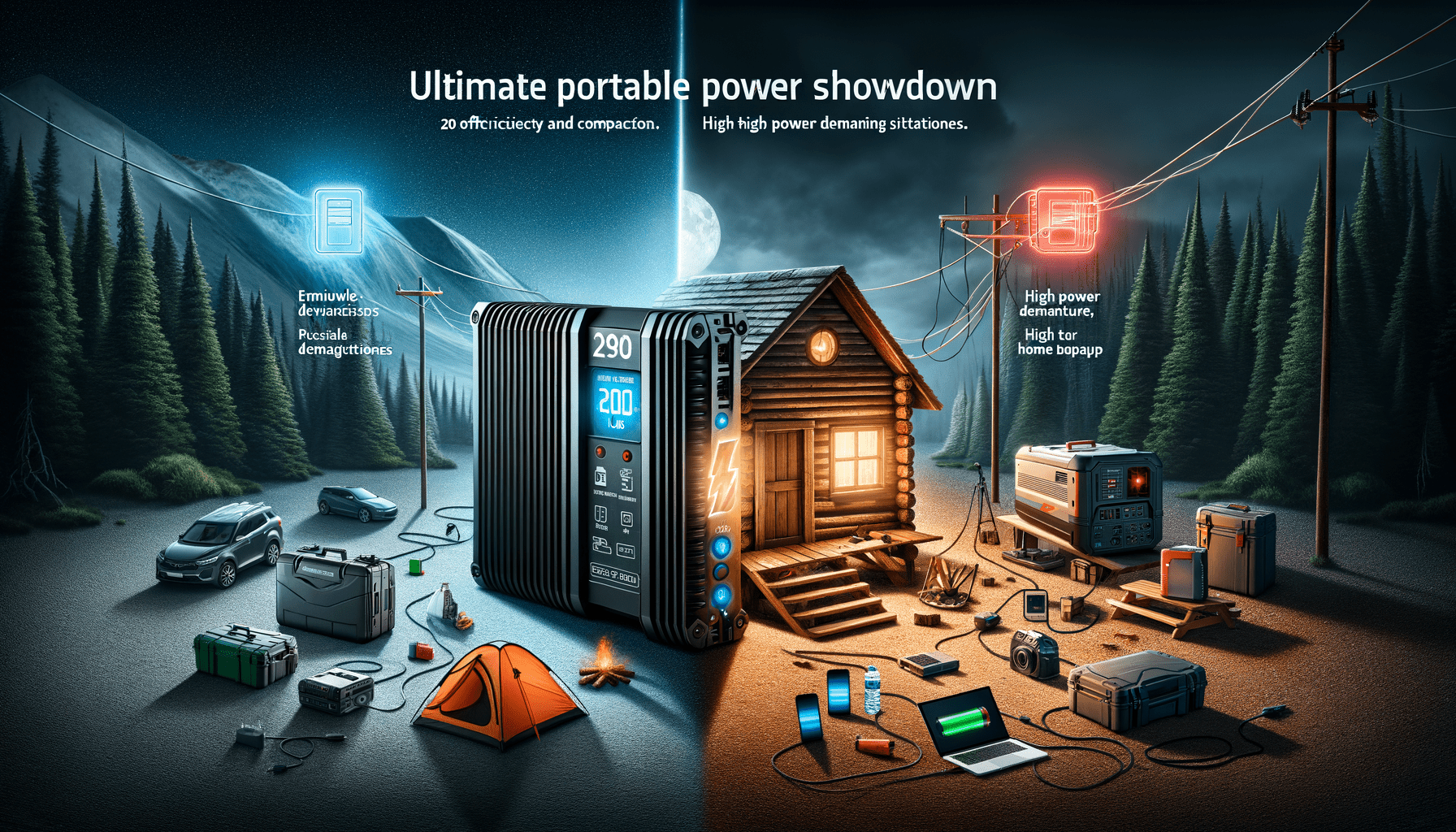When you’re in the market for a portable power station, two names may pop up frequently: EcoFlow Delta Pro and Renogy 1000. Both are heavyweight contenders in the realm of portable energy, but choosing between them can be as complex as understanding the power grid! Fear not—we’re about to dive into a detailed technical comparison to help you decide which power station is the reigning champion for your energy needs.
Capacity and Battery Life
| Feature | EcoFlow Delta Pro | Renogy 1000 |
|---|---|---|
| Battery Capacity | 3600Wh | 998Wh |
| Expandable Capacity | Up to 25kWh with extra batteries | Up to 1997Wh with parallel connection |
| Battery Type | Lithium Iron Phosphate (LFP) | Lithium Iron Phosphate (LiFePO4) |
| Cycle Life to 80% Capacity | 3500 cycles | 3000 cycles |
Output and Charging
| Feature | EcoFlow Delta Pro | Renogy 1000 |
|---|---|---|
| AC Output | 3600W (Surge 7200W) | 1500W (3000W with iBoost mode) |
| Max Device Power (with technology) | 4500W with X-Boost | 3000W with iBoost |
| USB-C Output | 100W Max per port | None specified |
| AC Charging Input | 1800W Max | Recharge to 80% in ~1 hour |
Physical Dimensions & Mobility
| Feature | EcoFlow Delta Pro | Renogy 1000 |
|---|---|---|
| Dimensions | 25*11.2*16.4 in | 18.27 x 10.79 x 11.57 in |
| Weight | 99lbs | 41lbs |
Charging and Compatibility
Both power stations can harness the sun with solar panels, but the EcoFlow Delta Pro can also be recharged at EV stations—a big plus if you’re an electric vehicle enthusiast. Each machine sports its own fast-charging technology, with Delta Pro touting a 2.7-hour full charge and Renogy 1000 boasting a zippy 1-hour charge to 80% capacity under AC input.
When it comes to extending your power capabilities, both units provide expansion options, albeit in slightly different ways. The Delta Pro is expandable with additional batteries, while the Renogy 1000 allows parallel connection for double the capacity.
Intended Use & Scenarios
The EcoFlow Delta Pro is a beast well-suited for home backup power, hefty outdoor tasks, and smart energy management, signaling its value in both indoor and heavy outdoor applications. Conversely, the Renogy 1000 fares excellently in outdoor living, camping, and emergency power scenarios, with its lighter weight hinting at superior portability.
Additional Features & Considerations
EcoFlow pads its resume with smart features such as the X-Boost technology and compatibility with a range of devices for seamless integration into smart homes. Renogy doesn’t stay behind, with its high-grade safety features, unique cooling system, and real-time battery monitoring—a testament to its robust design and emphasis on protection.


Sustainability and Certifications
Both power stations are built with sustainability in mind, employing solar power capability and energy-efficient designs. The EcoFlow Delta Pro may qualify for a 30% tax credit under the Renewable Energy Credit, which might be the tipping point for the environmentally and financially conscious.
Bottom Line
Deciding between the EcoFlow Delta Pro and the Renogy 1000 boils down to your specific energy needs, portability preferences, and budget. The Delta Pro offers a higher capacity and more robust power for diverse applications, while the Renogy 1000 shines in fast charging and portability for on-the-go use.


Leave a Reply